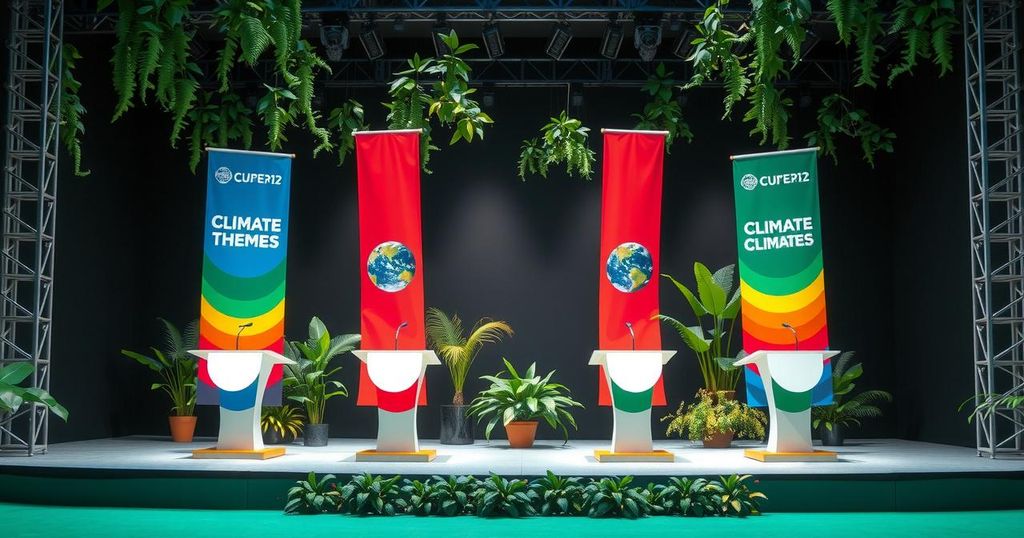Trump at CPAC 2025: Climate Denial and the Push for Deregulation

During the 2025 CPAC, Trump and other conservative leaders vehemently criticized climate policies, emphasizing a pro-fossil fuel agenda. Trump’s speech rejected international climate agreements and misrepresented environmental regulations. The event lacked scientific discussions, focusing instead on anti-climate rhetoric, led by figures like former UK Prime Minister Liz Truss and U.S. Energy Secretary Chris Wright, advocating deregulation and increased energy production.
The 2025 Conservative Political Action Conference (CPAC), held in mid-February outside Washington, D.C., witnessed prominent Republicans rallying around President Donald Trump and a fossil fuel agenda. Notable speakers included Vice President JD Vance, Elon Musk, and Steve Bannon, who echoed the sentiments of Trump’s base. Trump himself took center stage, denouncing the Paris Agreement and labeling the Green New Deal as a “disaster,” reiterating his administration’s stance on environmental regulations.
In a speech lacking factual basis, Trump claimed to have abolished the nonexistent electric vehicle mandate attributed to President Biden, and he mocked hydrogen fuel technology without evidence to support his statements. The conference focused predominantly on anti-climate narratives, contrasting with previous CPACs, which incorporated discussions on climate science. Prominent figures such as former UK Prime Minister Liz Truss expressed regret over her inability to lift a fracking ban during her brief tenure, linking environmental policies to high energy costs in Britain.
Chris Wright, the U.S. Energy Secretary, presented the administration’s goals of rolling back regulations enhancing fossil fuel production. His speech highlighted the demand for energy in artificial intelligence, implying competition with China in technological advancements. Additionally, Alaska’s Governor Mike Dunleavy was positioned as a candidate for Senate, promoting energy initiatives linked to Trump’s policies and a liquefied natural gas pipeline aimed at Asian markets.
Secretary of the Interior Doug Burgum spoke about exploiting public lands for international trade, claiming such actions would resolve trade deficits and contribute to national security. The emphasis was placed on creating a National Energy Dominance Council to streamline regulatory processes. Within the exhibit hall, only CFACT, a conservative think tank, addressed climate change, focusing on dissenting views against established scientific consensus and emphasizing their grassroots funding.
The overall environment at CPAC signified a shift towards unabashed denial of climate science, as speakers rallied behind an agenda that reassured attendees of the pro-fossil fuel policies prioritized by their leaders, particularly Trump.
The 2025 CPAC event exemplified the contemporary conservative movement’s unequivocal dismissal of climate science and its staunch loyalty to fossil fuel interests. Prominent speakers, including Trump, rallied around narratives that denigrate climate policies while advocating for deregulation and energy exploitation. This convergence of right-wing ideologies serves as a defining feature of present-day conservatism, prioritizing fossil fuel agendas over empirical climate discourse.
Original Source: whowhatwhy.org







